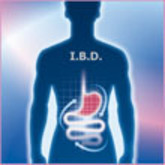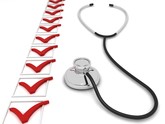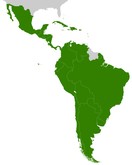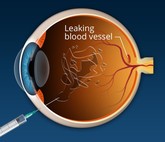Biosimilars/Research
Comparing biosimilar adoption: Medicare Advantage versus traditional Medicare
Biosimilar products, vital for widening access to essential treatments and reducing healthcare costs, face varied uptake influenced by factors like pricing and healthcare settings. Kozlowski et al.'s study compares adoption rates in Medicare Advantage (MA) and Traditional Medicare (TM), revealing significant differences [1].
Questioning the need for ethnic sensitivity assessments for biosimilar monoclonal antibodies
A GaBIJ perspective article entitled ‘Ethnic sensitivity assessments in biosimilar monoclonal antibodies clinical development programmes: necessary or not?’, was published by a group of authors from Biocon Biologics in August 2023 [1].
ANVISA's role in biosimilar medicine regulation and innovation promotion
The focus of the study by Vilha et al. [1] was to comprehend the role of the Brazilian Health Regulatory Agency, Agência Nacional de Vigilância Sanitária (ANVISA), not only as a regulatory authority but also as a catalyst for technological development and innovation. ANVISA has implemented a significant change in the way health regulations are handled in Brazil.
Infliximab discontinuation in patients with originator retransition vs biosimilar continuation
A study by Meijboom et al. aimed to compare the risk of and reasons for infliximab discontinuation between retransitioned patients and those remaining on biosimilar [1].
Biological therapies for psoriasis: evaluating durability and persistent benefits
A review by Rusiñol et al. emphasized the significant impact of biologicals on psoriasis management. Anti-IL-17 and anti-IL-23 biologicals are regarded as highly effective and long-lasting treatments in real-world scenarios, with IL-23-targeting biologicals showing the best safety profile and potential to modify the natural course of psoriasis.
Switches between biosimilars and their reference products
Biologicals are the fastest-growing class of medications in the United States and account for a substantial and growing portion of healthcare costs. The Biologics Price Competition Act of 2009 created an abbreviated approval pathway for the US Food and Drug Administration (FDA) to help provide patients with greater access to safe and effective biological products. As of 1 November 2023, FDA has approved 44 biosimilar products, 7 of which are interchangeable biosimilars. These products can be used to treat many conditions such as chronic skin and bowel diseases, arthritis, kidney conditions, diabetes, multiple sclerosis, macular degeneration, and cancer.
Latin America's biosimilars market: regulatory, institutional, and technological aspects
According to a study led by Bas (2023), the Latin American (LA) biosimilars market is positioned for substantial growth over the next decades as a cost-effective alternative to expensive patented biomolecules [1].
Impact of trastuzumab biosimilars use in metastatic HER2-positive breast cancer
A review conducted by Sarder and Ahmad attempted to describe and analyse the studies published in peer-reviewed literature on the use of trastuzumab biosimilars for patients with HER2-positive breast cancer, including their efficacy, safety, pharmacokinetic and pharmacodynamic properties [1].
Biosimilar anti-VEGF: transforming retina treatment economics in South Asia
Anti-vascular endothelial growth factors (anti-VEGF) agents combat retinal diseases causing blindness. However, high costs and non-adherence pose challenges. Ophthalmic anti-VEGF ranibizumab biosimilars, which have received multiple approvals in South Asia, are helping to reduce healthcare costs and revolutionize ophthalmic treatments.
Long-term data support the clinical comparability of AVT04 to Stelara
Long-term efficacy, safety and tolerability data for the AVT04 ustekinumab biosimilar candidate developed in partnership by Alvotech and STADA corroborate the finding of therapeutic equivalence to the Stelara® reference product in patients with moderate-to-severe chronic plaque psoriasis (PsO) in the primary endpoint at Week 12.













